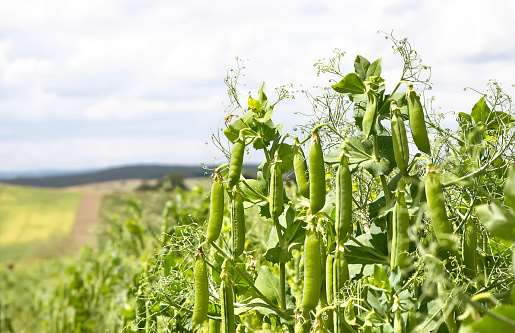Facility is expected to create about 150 jobs
By Diego Flammini
Assistant Editor, North American Content
Farms.com
A new $400 million pea-protein processing facility is being built in Portage la Prairie, Manitoba, and expected to employ 150 people upon its completion.
Roquette, a company based in France, is building the facility. It will serve both global and North American markets while also improving Manitoba’s food-processing sector.

The new plant, which will be the largest dedicated to pea protein processing in the world to date, will support the future of Manitoba’s agriculture industry and help address the growing global demand for innovative food, nutrition and health products and solutions,” Edouard Roquette, the company’s chairman, said in a release.
The company said building the facility in Manitoba is no accident.
“This new site is strategically located in Canada, the world’s largest producer of peas, with around 30% of the total global production. Manitoba’s well-educated and professional workforce, strong logistic infrastructures and reliable, competitive and sustainable hydroelectric energy, make the province a very attractive environment for this new facility.”
Construction on the facility is scheduled to begin in the second half of 2017, with production scheduled for 2019. The new plant could provide up to 150 jobs for Manitobans once it’s fully operational.
“This new facility will create jobs and establish stronger markets for Canadian farmers while benefiting our province’s economy for decades to come,” Manitoba Premier Brian Pallister said in the release. “It also demonstrates to Canada and to the world that our province is open for business and ready to compete for investments in agricultural production and innovation.”